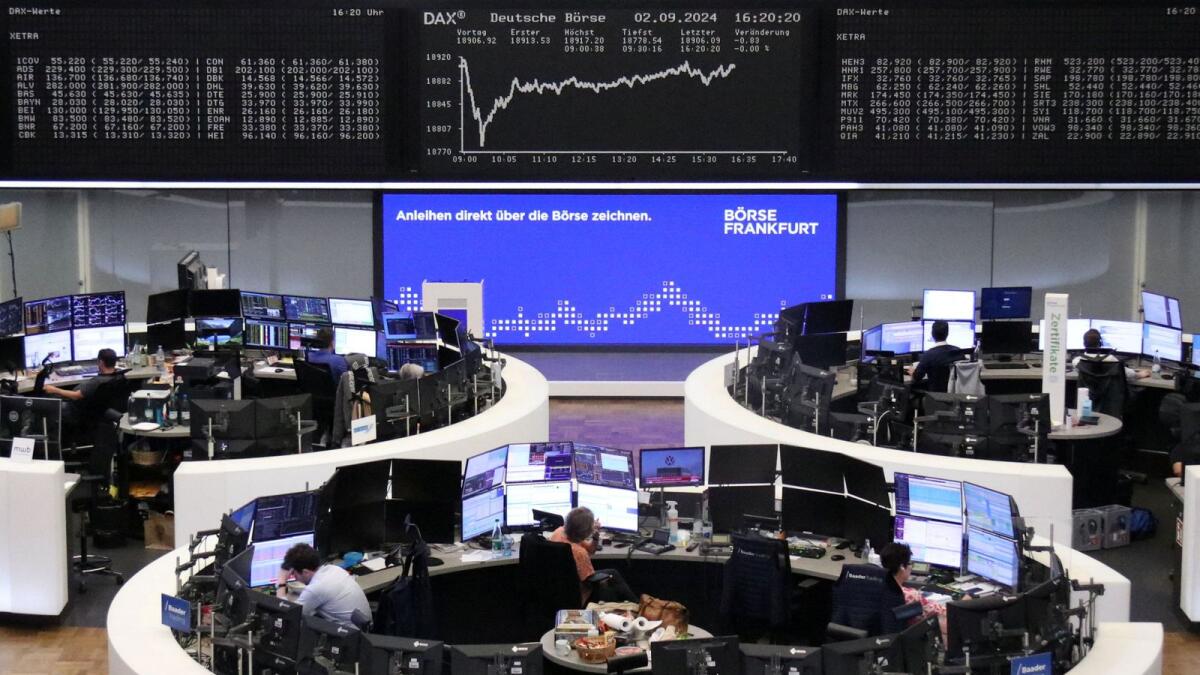The global stock market trading was influenced by weak Chinese economic data, with most major Asian markets closing lower despite optimism over an expected US interest-rate cut. Despite the negative sentiment, European markets were able to recover in late afternoon trading, with Frankfurt’s DAX setting a new record close. Wall Street remained closed for a US public holiday, contributing to the subdued trading sentiment. The weak Chinese economic performance, as indicated by the fourth consecutive month of contraction in the country’s manufacturing sector, raised concerns among investors.
The Purchasing Managers’ Index (PMI) for China stood at 49.1 points in August, indicating a stronger contraction compared to July. This contraction signified the challenges faced by China as it navigates through a real estate slowdown. The government is under pressure to implement stimulus measures, especially for the troubled property industry, amid concerns that the GDP growth target for the year may be missed. The data also impacted oil prices and the yuan, with luxury sectors such as fashion and real estate experiencing declines while companies like Volkswagen saw positive movement.
The market focus shifted towards the anticipated US Federal Reserve interest rate cut in September following weaker inflation figures in July. Attention turned to the release of the non-farm payrolls report, which would provide insights into the US economy. Analysts were looking for clues on the size of the interest rate cut, with expectations ranging from 25 to 50 basis points. Strong job figures could influence the market’s expectations of future rate cuts, potentially leading to a sell-off of the US dollar if the Fed signals a less dovish stance.
Market sentiment was impacted by the release of job data, with previous data showing concerns over a potential recession. Any pricing out of interest rate cuts post the payrolls report could strengthen the dollar, potentially affecting risk sentiment in the market. Analysts were closely monitoring the payrolls report to gauge the economic health of the US, as the data could influence the Fed’s decision on future rate cuts. The strength of the US dollar post the report could have implications for market volatility and investor confidence in the coming weeks.
In conclusion, global stock market trading was influenced by weak Chinese economic data and anticipation of a US interest-rate cut. While Asian markets closed lower, European markets saw a late recovery. The Chinese manufacturing sector’s contraction raised concerns over the country’s economic performance and the need for stimulus measures. The focus shifted to the anticipated interest rate cut by the US Federal Reserve, with market sentiment hinging on the US economic data and the Fed’s decision. Investors closely watched the payrolls report for insights into the US economy and potential impacts on market volatility.










